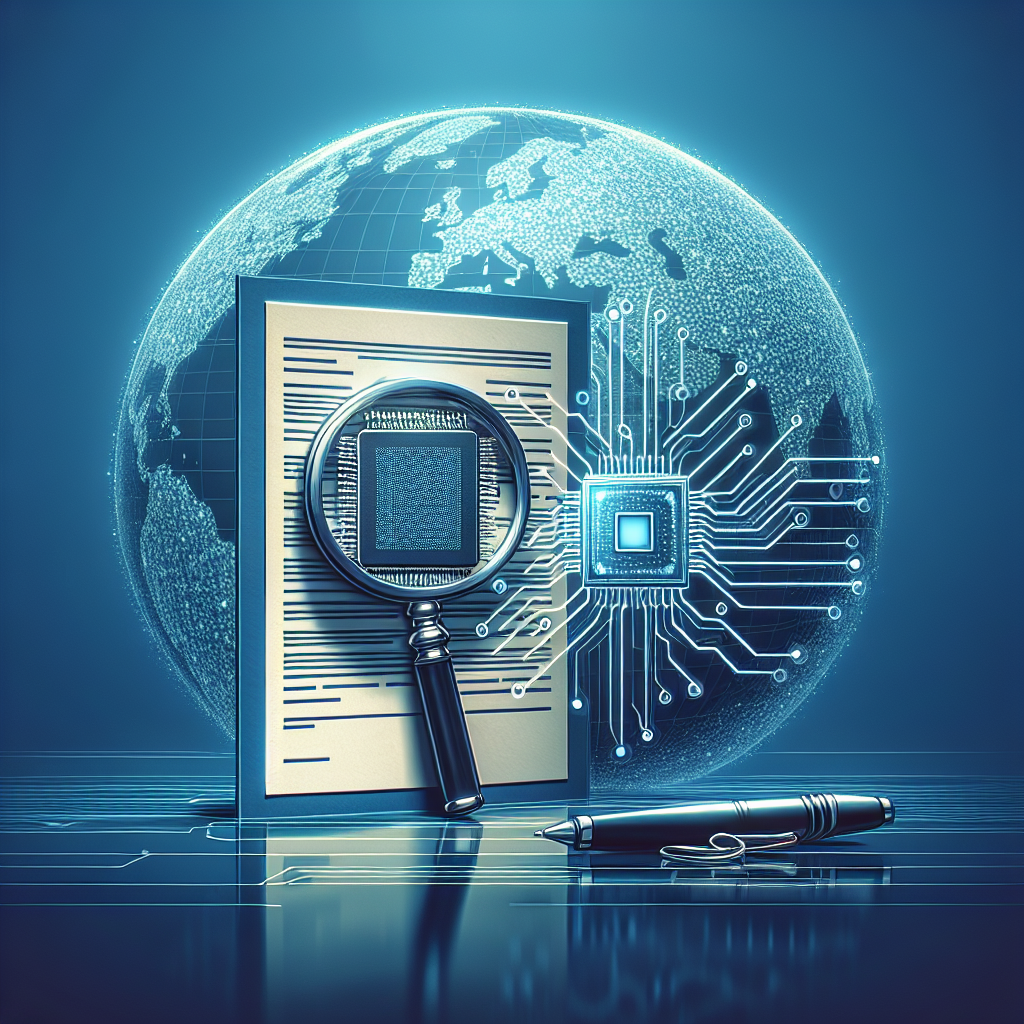Corruption in government is a pervasive problem that affects countries around the world. It undermines trust in public institutions, distorts economic development, and erodes the rule of law. According to Transparency International, corruption is estimated to cost the global economy over $2.6 trillion annually.
One potential solution to combat corruption in government is the use of Artificial Intelligence (AI) technology. AI has the potential to revolutionize the way governments detect and prevent corruption by analyzing large amounts of data, identifying patterns and anomalies, and automating processes. In this article, we will explore how AI can be used to combat corruption in government and the benefits and challenges associated with its implementation.
How AI can combat corruption in government:
1. Detecting patterns and anomalies: AI can analyze vast amounts of data to identify patterns and anomalies that may indicate corrupt activities. For example, AI algorithms can analyze procurement data to detect unusual spending patterns or identify potential conflicts of interest. By flagging suspicious activities, AI can help government agencies prioritize investigations and allocate resources more effectively.
2. Automating processes: AI can automate routine tasks such as data entry, document processing, and compliance checks, reducing the risk of human error and bias. This can streamline government processes, improve efficiency, and reduce opportunities for corruption. For example, AI-powered chatbots can help citizens report corruption anonymously, increasing transparency and accountability.
3. Predictive analytics: AI can use predictive analytics to forecast future trends and risks, enabling government agencies to proactively address potential corruption issues. By analyzing historical data and identifying risk factors, AI can help governments implement preventive measures and mitigate the impact of corruption.
4. Enhancing transparency: AI can improve transparency in government operations by providing real-time access to information and fostering greater accountability. For example, AI-powered dashboards can visualize data on government spending, procurement contracts, and regulatory compliance, allowing citizens and watchdog organizations to monitor government activities and hold officials accountable.
Benefits of using AI to combat corruption in government:
1. Increased efficiency: AI can automate time-consuming tasks and streamline processes, allowing government agencies to focus on high-priority activities and respond more quickly to corruption allegations.
2. Improved accuracy: AI algorithms can analyze data more accurately and objectively than humans, reducing the risk of human error and bias in corruption investigations.
3. Enhanced transparency: AI can increase transparency in government operations by providing access to real-time data, enabling citizens to monitor government activities and detect potential corruption.
4. Cost savings: AI can help governments save money by reducing the need for manual labor, improving resource allocation, and preventing financial losses due to corruption.
Challenges of using AI to combat corruption in government:
1. Data privacy: AI requires access to large amounts of data to be effective, raising concerns about data privacy and security. Governments must ensure that AI systems comply with privacy regulations and protect sensitive information from unauthorized access.
2. Bias and discrimination: AI algorithms can be biased if they are trained on data that reflects historical prejudices or inequalities. Governments must ensure that AI systems are transparent, accountable, and fair to avoid perpetuating existing biases in corruption detection.
3. Lack of expertise: Implementing AI technology requires specialized knowledge and skills that may be lacking in government agencies. Governments must invest in training and capacity building to effectively use AI to combat corruption.
4. Resistance to change: Some government officials may be resistant to adopting AI technology due to concerns about job security, loss of control, or unfamiliarity with new tools. Governments must address these concerns and communicate the benefits of AI to gain support for its implementation.
FAQs:
1. Can AI completely eliminate corruption in government?
While AI can help detect and prevent corruption, it is not a panacea. Combating corruption requires a holistic approach that includes strong legal frameworks, effective enforcement mechanisms, and a culture of transparency and accountability. AI can support these efforts by providing valuable insights and tools, but ultimately, the responsibility for combating corruption lies with governments and society as a whole.
2. How can citizens contribute to using AI to combat corruption in government?
Citizens can play a crucial role in using AI to combat corruption by reporting suspicious activities, monitoring government operations, and advocating for transparency and accountability. By engaging with AI-powered platforms and tools, citizens can help identify corruption risks, hold officials accountable, and promote ethical governance.
3. What are some examples of AI applications in combating corruption in government?
Several countries have already implemented AI solutions to combat corruption in government. For example, Estonia uses AI algorithms to analyze public procurement data and detect potential fraud and collusion. Singapore has launched an AI-powered chatbot that allows citizens to report corruption anonymously. These initiatives demonstrate the potential of AI to enhance transparency, efficiency, and accountability in government operations.
Conclusion:
AI has the potential to revolutionize the way governments combat corruption by detecting patterns and anomalies, automating processes, predicting risks, and enhancing transparency. While AI is not a cure-all for corruption, it can be a valuable tool to support efforts to promote integrity, accountability, and good governance. Governments must address the challenges associated with AI implementation, such as data privacy, bias, lack of expertise, and resistance to change, to maximize the benefits of AI in combating corruption. By harnessing the power of AI technology, governments can take decisive steps towards building more transparent, accountable, and ethical institutions.

